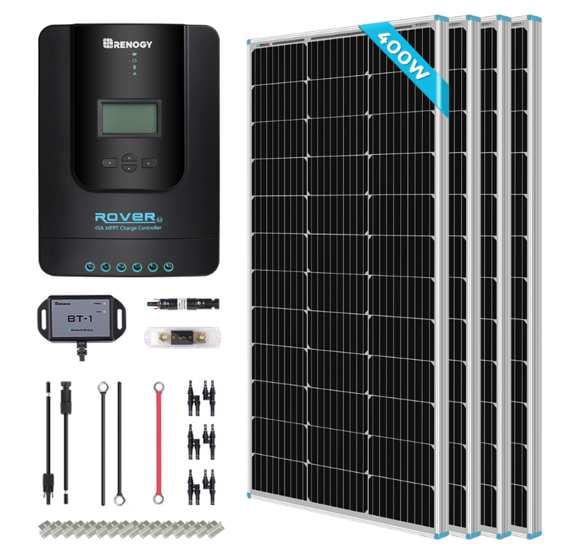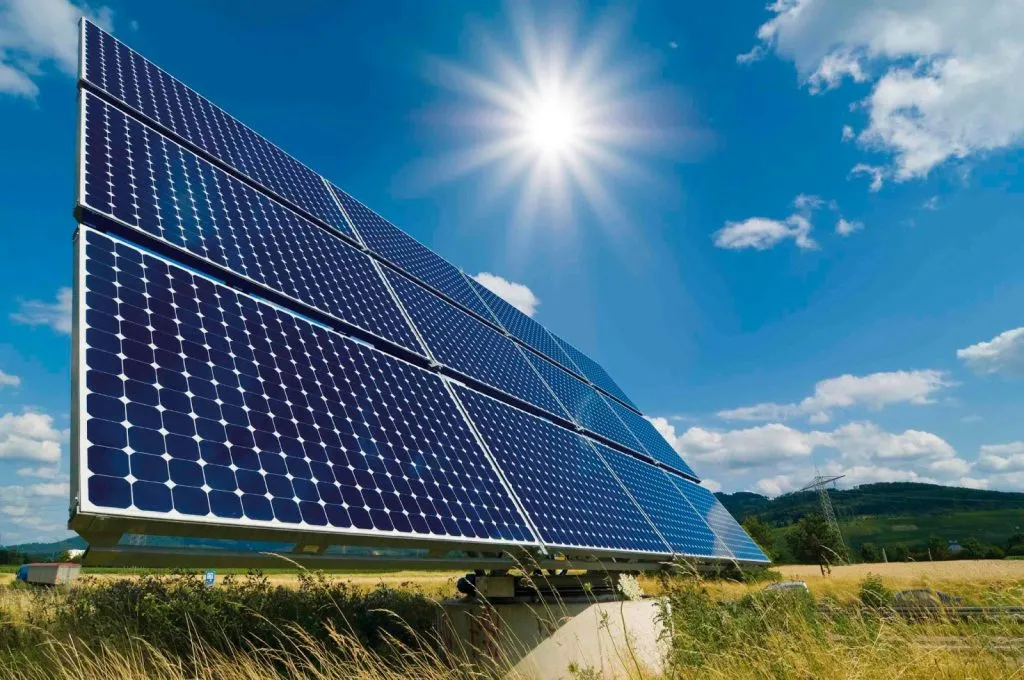Most residential solar panels on the market today are rated at 250 to 400 watts per hour. Solar module systems for private households usually have an output of between 1 kW and 4 kW. A 4kW solar panel generator system on an average sized one can generate around 2850kWh of electricity per year under ideal conditions.
A solar panel’s performance depends on several factors, including size, capacity, location and weather conditions. In connection with PV systems, however, there are usually many other questions, such as: Can I store the electricity generated by my solar modules? How can I check if my solar panels are working efficiently? How can I calculate the power of a solar module?
Because every solar panel system is different, it’s difficult to say exactly how much electricity your system can generate. Still, you can get a rough idea of how much money you can expect to save. There are also some general guidelines that you can use to estimate the potential performance of your system.
Solar panel output per day
Use this formula to calculate how much electricity – measured in kilowatt hours (kWh) – your modules can generate per day:
– Size of a solar panel (in square meters) x 1,000
– This number x efficiency of a solar module (percentage as a decimal value, e.g. 20%)
– This number x number of hours of sunshine in your area per day (e.g. x 5)
Divide by 1000.
An example:
The panel is 1.6 square meters:
1.6 x 1,000 = 1,600
The panel has an efficiency of 20%:
1,600 x 0.2 = 320
Your surface receives 4.5 hours of sunshine per day*:
320 x 4.5 = 1.440
Divide by 1,000:
1,440 ÷ 1,000 = 1.44 kWh per day
x number of sunny days per year*.
*The number of hours of sunshine varies greatly throughout the year (4.5 hours is an estimate for July) and will be much lower, particularly in the winter months.
Output of the solar module per month
To find the total monthly power, calculate the daily value and multiply it by 30:
1.44 x 30 = 43.2 kWh per month
Output of the solar module per square meter
The most common solar module systems for private households have an output of 4 to 5 kW. They consist of approximately 16 to 20 modules, each module being approximately 1.6 square meters (m2) and rated at approximately 265 watts (W) under ideal conditions.
Around 150 kilowatt hours are produced per square meter in one year. At 30 m2, this is approx. 4,500 kWh that your photovoltaic system can supply. With a high level of self-consumption, the photovoltaic system should be around 40m² in size.
To calculate the power per square meter use this formula:
– Number of panels x capacity of the solar panel system
– capacity ÷ total size of the installation (number of modules x size of a module)
Example:
16 panels of 265 W each
16 x 265 = a power of 4,240 kW
Total size of the system (16 panels of 1.6 m2 each)
4,240 ÷ 6 = 165W per m2
More questions, answers topics and information
How many watts does a solar panel produce?
Residential solar panels currently on the market are 100W watt solar panel and 400 watt solar panel.

How much electricity does a 1kW solar panel system produce?
A 1kW solar panel system can generate about 850kWh of electricity every year.
How effective are solar panels?
The following factors affect how much electricity your solar panels will generate:
Capacity
The maximum amount of current the system can produce under ideal conditions (known as ‘peak’). Also referred to as “rated capacity” or “rated power”, it is 1,000 watts (or 1 kW) of sunlight per square meter of panel area. Most residential solar panel systems have a capacity between 1 kW and 4 kW.
Efficiency
The fraction of energy from sunlight that solar panels can convert into electricity. Since conditions for solar panels are never perfect, they will never be 100% efficient. Most residential modules are around 20% efficient. Panels with 40 to 50% efficiency are available but are usually prohibitively expensive. Higher efficiency solar panels tend to be more expensive but take up less roof space.
Materials
The material from which a module is made can also affect its efficiency. Monocrystalline solar panels use higher quality silicon and are therefore the most efficient in terms of performance and footprint. Polycrystalline modules are slightly less efficient but cheaper to buy.
Topics around your roof
Direction
Switzerland is located in the northern hemisphere of the earth, about 5274 km north of the equator. At our latitude of 47 degrees north, the sun is always more or less south of your house. For this reason, south-facing roofs produce the best results, although solar panels will also work on east- or west-facing roofs.
Tilt
A roof pitched at an angle of about 30 degrees is said to give the best overall performance.
The shade
Your roof must be free of shadows and obstacles (e.g. trees) as anything that blocks sunlight will affect the efficiency of the panels.
Your location
Not all areas of Switzerland receive the same amount of sunlight. The south of Switzerland and Valais are the sunniest parts of the country and benefit from the high air pressure, which clears the sky of clouds. The further inland and north you go, the more the solar radiation decreases, which slightly affects the yield of solar panels.
Can I store the electricity generated by my modules?
It is well known that, 12 volt deep cycle battery for storing solar energy have been around for a number of years. However, the technology is still fairly new, so these products can be quite expensive – although, like solar panels, the cost is gradually coming down.
Feed-in tariff
If you register your PV solar panel system with the local feed-in tariff, you will receive remuneration for the electricity that you produce, feed into the grid and do not consume yourself. However, since these remunerations are quite low, it is in your interest to use as much electricity as possible, store it in a 12 volt lithium battery and use it at night.
Storage batteries
Any battery you install must be compatible with your solar panels and have the correct voltage. Your solar panel installer will be able to tell you what type of battery (if any) is best for you.
How can I check if my solar panels are working efficiently?
Your solar modules are connected to a control device. Most often, this is a wireless device that allows you to monitor whether your facility is producing as much power as it should. If you are concerned that your solar panels are underperforming, contact the installer or manufacturer. You can send a professional technician to investigate.
